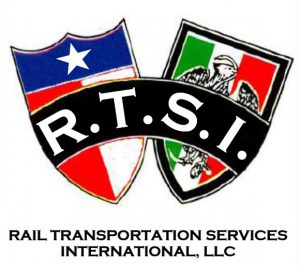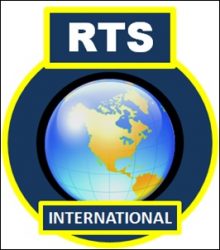Welcome to Rail Transportation Services International, LLC.
Rail Transportation Services International (RTSI) has demonstrated experience in transportation optimization modeling, quantitative analysis and consulting interface with major railroads, contract trucking carriers and others.
This experience has include designing routes, handling transportation optimization for truck, rail and marine, conducting detailed operational studies, and network optimization from design to implementation.
RTSI experience includes presenting to customers and transport carriers, conducting customer interviews and discussions. Additionally, RTSI representatives have expert knowledge of transportation modes and pricing structures including experience with routing, transportation planning and optimization packages and related rationalization modeling.
RTSI Railway Consulting Solutions

Identify Existing Rail Infrastructure –
Determine railroad properties that are suitable for acquisition, redevelopment, and/or revitalization pursuant to strategic investment as to stated business or developmental criteria.
Inspect, Inventory and Qualify Railroad Assets –
- Onsite track equipment, rolling stock, and locomotive inspections,
- Buildings, offices, stations, and other structure inspections,
- Track and grade separation inspections,
- Reviewing track valuation maps, and any recent inspection reports,
- Train control signal systems, grade crossings, right-of-way(s) inspections,
- Business computer systems, software, communications reviews,
- Inspect rail car and locomotive maintenance areas, facilities, and tooling,
- Inventory track materials, rail car and locomotive parts, and components,
- Inspect onsite vehicles (trucks, cars, trailers, etc.), and
- All other onsite found assets.
Review Railroad Operations:
Railroad Inspections – Review the subject railroad’s operational practices and characteristics, rules and safety practices, e.g., interchange points, industrial sidings, yards, passing tracks, main line tracks, intermodal terminals, and other operational features unique to the railroad operation including unit commodity and stack trains, and general revenue trains, etc.
Track Maintenance – Track inspections and budgets for rehab infrastructure work, new track construction, rail and crosstie replacement, track ballasting and surfacing, engine terminal design and construction, rail car repair track set up, etc.
Analyze Marketing Strategy – Review the railroad’s present business strategy, annual car counts, traffic expansion or growth potential(s), and any other related strategic rationalizations available with adjacent properties to the right-of-way.
Railroad Rolling Stock – Conduct search and complete inspections for acquisition (lease or purchase) railroad rolling stock (freight cars), switching and/or road haul diesel locomotives.
Staff Review – Railroad employees and other staffing for all departments, e.g., Business and Marketing (Sales) Administration, Track and Right-of-Way Maintenance, Train Operations, Rail Car / Locomotive Maintenance, Safety, etc.
Analyze Traffic Reports – Review railway traffic reports, train service and operating cycle times over the railroad on a daily, weekly, and monthly basis. Determine seasonality aspects of the railroad in terms of commodities and/or freight shipped and potential alternatives available.
Develop Operating Report Documentation – Railroad operating plans, repair reports, budgets, staffing schedules, safety reports, rates, and other tariffs. Interview Class 1 railroad interchange partner business unit(s), on line industries (shippers), and determine recent resolution action items for the FRA, AAR, and the ASLRRA.
Rail Car & Locomotive Fleet Management – Track and trace railcars, completion of waybills, rate negotiations, demurrage analysis, fleet maintenance analysis, and fleet management reporting, ad valorem tax billings, etc. Operate railroads, rail car switching, loading, and discharge.
Rail Car Storage – Track leases, storage agreements, rail car storage instructions, switching reports, billing, and payment submissions.
Multimodal Interface – Review potential inland and ocean marine shipping interface with truck and rail services for containers; plus planning over-dimensional (high / wide) and heavy haul loads complete with delivery guidelines, project budgets, bids, and schedules.
Note Unrealized Opportunities –
These could include possible business expansion steps, needed reorganization, capital infrastructure improvements, financing options and asset leverage.
Provide Recommendations and Negotiate –
Consider Railroad Owner’s position and define type of offer, e.g., contracts, a bid offer, a Request for Proposal (RFP), or an Unsolicited Offer to Purchase (UOP) a line.
Contact us today to learn what we can do for you.


